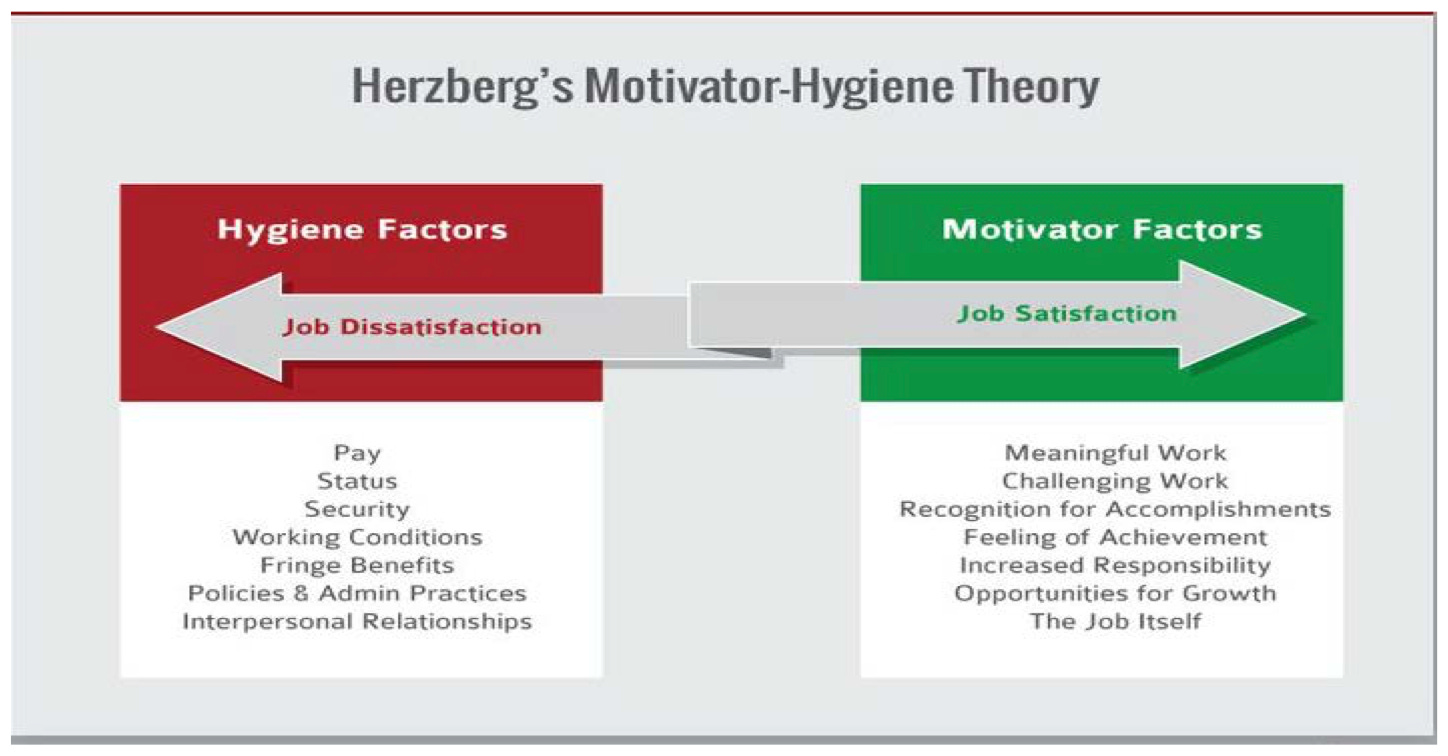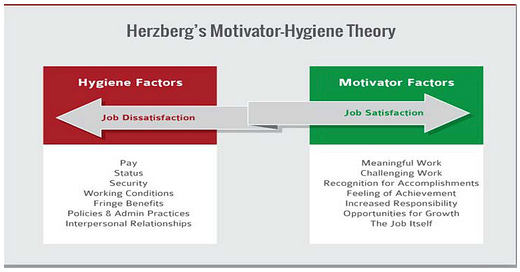In a recent coaching session, a head of product and I spent a good chunk of time discussing a potential job offer for a new PM to join the team. It was a solid offer, but the candidate wanted more money.
This raised the question: if the new person joined, would they be motivated?
A very useful model here is known as two-factor theory. In a nutshell, it says that some attributes of our work are motivators, and others are "hygiene" factors.
What’s a hygiene factor? It’s a factor that has causes dissatisfaction when lacking, but adds little to no motivation when satisfied.
If you haven’t eaten in days, you’ll likely be unhappy with your food situation. Once you’ve had enough, eating more won’t make you more satisfied.
Removing the negative does not create the positive.
The key word here is “enough.” We do need enough of certain things to not be dissatisfied (money, time, control, etc.). But beyond a certain threshold, more of those things will not increase our overall satisfaction.
I hate to spoil the punchline, but it's a short newsletter, so too bad: **money is a hygiene factor**.
Many attributes people tend to pursue are hygiene factors, such as schedule flexibility (working conditions). This image, and the discussion in the excellent book "How Will You Measure Your Life?," explore several common factors in each direction.

What you need to remember: in terms of satisfaction, **adding the positive and removing the negative are separate processes.**
Addressing a hygiene factor won't motivate someone on your team. It will just remove a source of dissatisfaction. All the upside to be had is elsewhere.
The good news? You have much more direct influence on the things that actually do create motivation.



